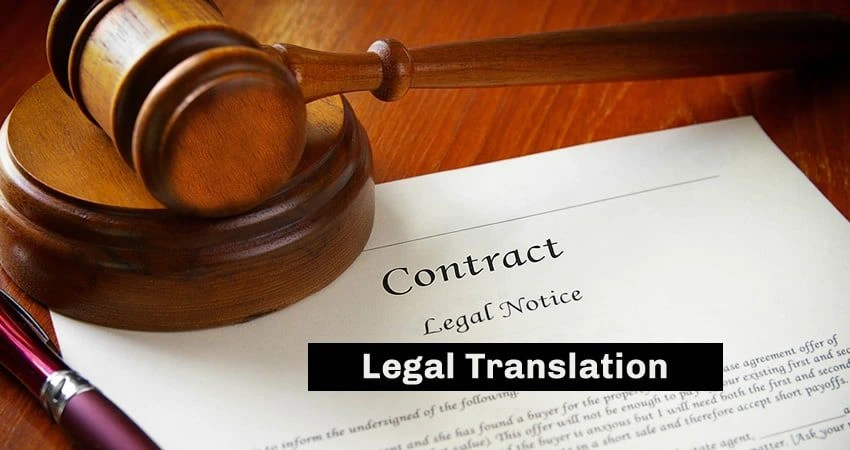Legal translations are about accuracy, and confidentiality in Legal Translations documents is more important. It contains sensitive information of individuals, businesses, and other legal proceedings, which need to be kept confidential. As we discussed in our last blog: Why Legal Translations Require Subject Matter Expertise, professional translators are required to deliver high-quality work. Similarly, professional translators are required to keep confidential the information involved in legal documents. If confidentiality is breached, it can have serious consequences. Therefore, protection of information for legal documents and legal translations is not just a part of professionalism but an ethical obligation to be followed.
In this blog, we will explore why and how confidentiality is important in legal translations and the role it plays in maintaining trust while upholding legal standards at the same time.
No Room for Error
Legal documents contain confidential information, whether it is about contracts or court rulings; these documents are not to be shared publicly. In cases where this information is not handled professionally, it can have serious consequences.
To understand this better, imagine a business contract’s details being shared with the competitor through a breach of confidentiality. As we all know, this can be a big problem for the business, leading to financial losses and reputational damage. Therefore, it has to be kept confidential.
Legal Obligations to Keep Confidentiality
In addition to maintaining confidentiality through professionalism, legal obligations also bind translators to keep confidentiality through confidentiality agreements. These documents mostly come with Non-disclosure Agreements (NDAs) that translators need to adhere to.
Trust in Client Relationships
Confidentiality is the key between a legal translator and their client. It is the responsibility of the professionals to ensure that sensitive documents are handled with utmost care. Mishandling can have serious consequences, such as risking the reputation of the client.
At TransLinguist, we understand the importance of trust in translators. Therefore, our team of expert translators works professionally while keeping confidentiality and hence, the trust of our clients.
The Role of Technology in Maintaining Confidentiality
In this age of technology, protecting sensitive information not only requires professionalism but also technical expertise. As legal translations now use digital platforms, the information is more vulnerable to cyberattacks and data breaches.
Therefore, the responsibility lies with legal translators to ensure the use of secure platforms for actions like file sharing for the information to be protected accordingly.
At TransLinguist, we utilize advanced technologies to ensure that your legal documents are always protected.
Types of Confidential Information
First of all, we need to know the types of confidential information that need to be kept confidential. Knowing these types will help professional translators handle the information with care and more responsibility. These are:
Personal Data:
Names, financial details of individuals, or addresses.
Business Information:
Partnership contracts, fiscal statements, and data of proprietary business.
Court Proceedings:
Witness statements, transcripts, or legal strategies that can affect the outcome of a trial.
Intellectual Property:
Patents, trademarks, and other intellectual property filings that contain valuable information.
Best Practices for Confidentiality in Legal Translations
Now comes the main question: How can translators maintain confidentiality? Here are a few best practices:
Use Secure Platforms:
Use encrypted communication and file-sharing platforms for sending or receiving legal documents.
Non-Disclosure Agreements:
Make sure NDAs are signed so all parties involved are bound by legal obligations.
Limit Access:
Only authorized personnel should have access to sensitive documents.
Regular Audits:
Have regular reviews of security protocols to identify vulnerabilities and reinforce confidentiality measures.
Proper Disposal:
After a project is completed, sensitive documents should be disposed of according to data protection guidelines.
Conclusion
Legal translations are more than just accurate and legally correct translations. They involve confidential information, such as personal data or corporate contracts. This can be maintained by dealing with licensed and experienced legal translators who follow ethical guidelines.
At TransLinguist, we serve a wide range of clients through our professional and certified legal translators who deliver high-quality work. Get in touch with us today to learn more about our services and how we can help you.
FAQs
What is confidentiality in interpreting?
It means keeping all spoken information private and not disclosing anything shared during interpretation.
What does confidentiality mean in legal guidelines for documentation?
It refers to protecting sensitive legal information from unauthorized access or sharing.
How do I translate a confidential document?
Use a certified translator, sign an NDA, and share files through secure, encrypted platforms.
What is a major concern in legal translation?
Ensuring both accuracy and confidentiality to avoid legal and reputational risks.
Can I translate legal documents?
Yes, but it is best done by certified legal translators to ensure accuracy and confidentiality.



